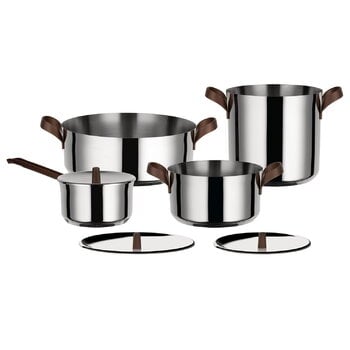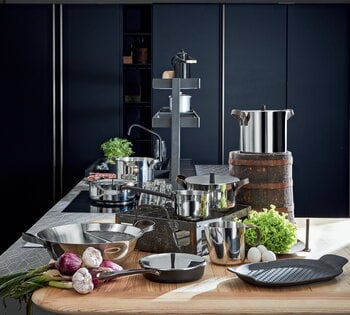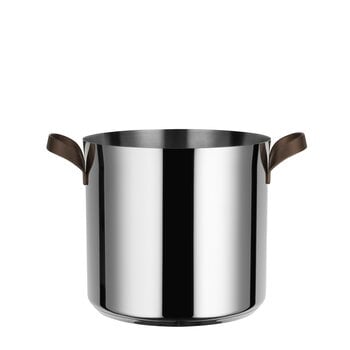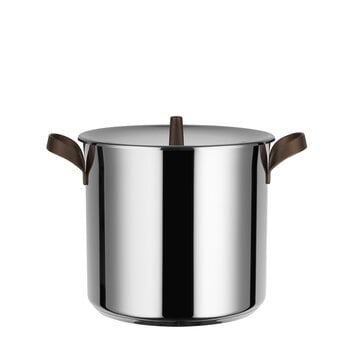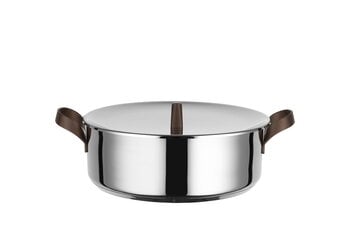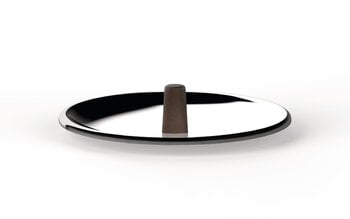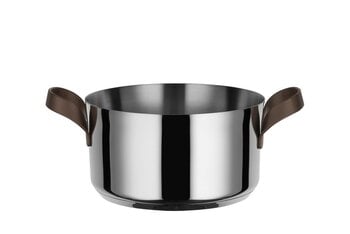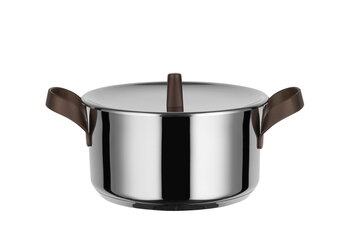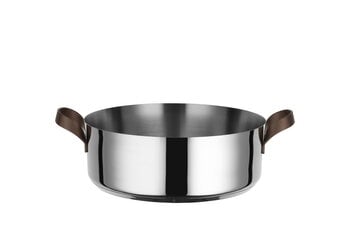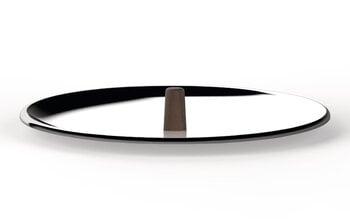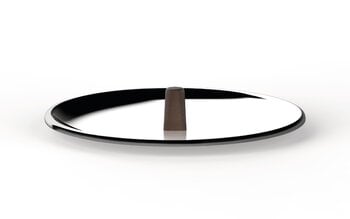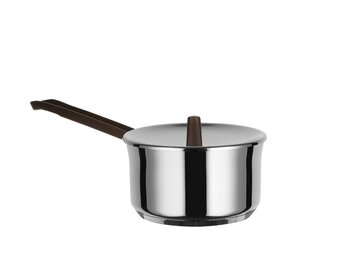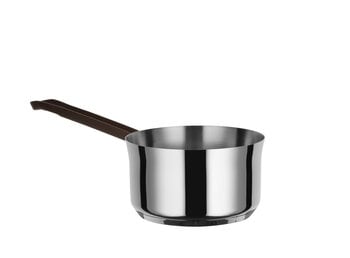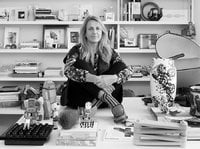The Edo cookware set by Alessi consists of four stainless steel pots and pans with three lids, including:
- Edo stock pot 20 cm, 4,9 L
- Edo casserole with handles 20 cm, 2,8 L
- Edo low casserole with handles 24 cm, 3,25 L
- Edo saucepan 16 cm, 1,3 L
- Lids 16 cm, 20 cm and 24 cm
Alessi’s Edo collection got its name from two different directions: the name refers to the Latin word "edere", ”to eat”, and Edo is also an ancient name of the city of Tokyo. Both Italian know-how and Japanese design influences are clearly visible in the smooth, seamless design and harmonious elegance of the collection. The most recognizable details of the Edo pots and pans are the burnished, curved handles reminiscent of fabric ribbons. The Edo range was created by the Spanish designer Patricia Urquiola.
